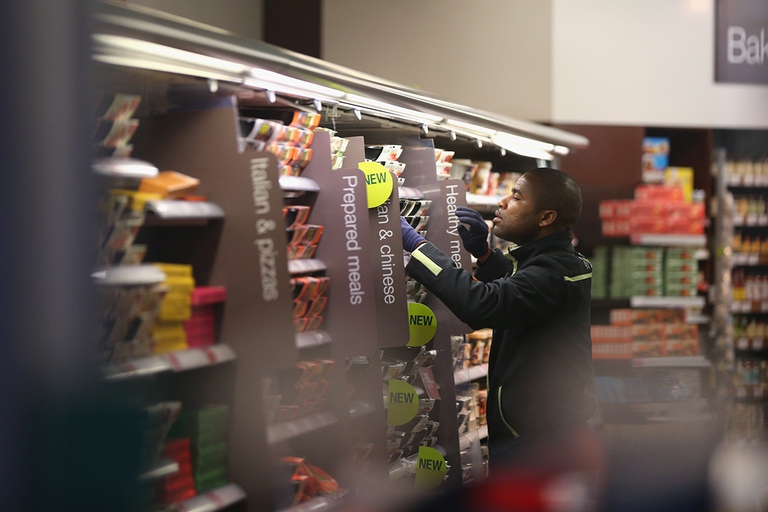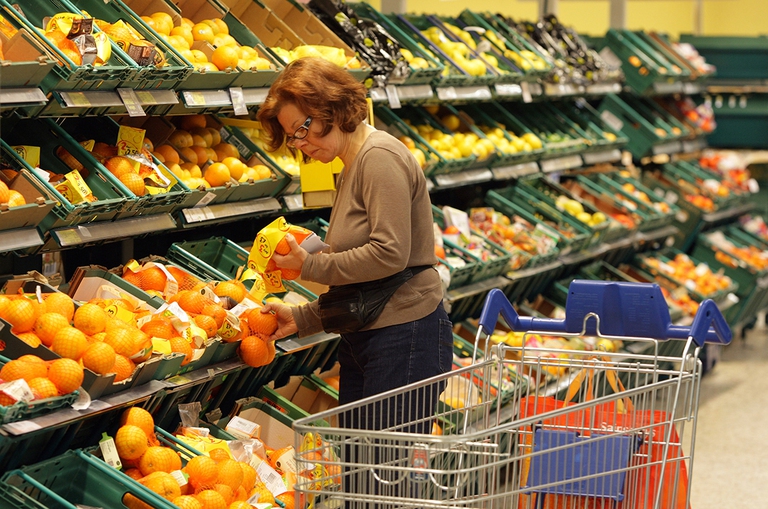
Factory farming conditions and antibiotic-resistant pathogens emerging as a result of them pose an existential threat to humans in the form of zoonotic diseases. Why it’s time to produce and consume food more thoughtfully.
A group of UK leading retailers teamed up to reduce supermarket food waste. In 2014, according to the British Retail Consortium (BRC), they managed to reduce food waste by 20,000 tonnes. Asda, Co-operative Food, Marks and Spencer, Morrisons, Sainsbury’s, Tesco, and Waitrose reduced, from 200,000 to 180,000 tonnes, the edible food being thrown away over the past year.
A group of UK leading retailers teamed up to reduce supermarket food waste. In 2014, according to the British Retail Consortium (BRC), they managed to reduce food waste by 20,000 tonnes. Asda, Co-operative Food, Marks and Spencer, Morrisons, Sainsbury’s, Tesco, and Waitrose reduced, from 200,000 to 180,000 tonnes, the edible food being thrown away over the past year.
The report has been edited by the Waste and Resources Action Programme (WRAP), which along with the retailers agreed to a set of common rules to make the report as clear and accurate as possible. Supermarkets waste 1% of UK’s total food, equal to about 15 million tonnes. The cooperation aims to raise the awareness of other actors involved in the food supply chain, from farmers to consumers, on the need of reducing food waste.
Tesco found that 41 per cent of food waste in its supermarkets is due to the bakery departments. The group thus adopted a strategy aimed to reduce the amount of bread baked at a time. Moreover, Tesco decided to donate part of surplus food to charities. This is an initiative with economic, social, environmental, and educational values.
Similarly, Marks and Spencer has announced the launch of a redistribution programme that involves 150 of the UK’s largest supermarkets. Food surplus is donated to a group of local organisations helping needy people.
The choice of these leading retailers is in line with the coalition made of environmental associations and multinationals including WWF, Pepsi, Sodexo, Unilever, and McCain. The International Food Waste Coalition (IFWC) has been presented on 16 October, in occasion of the World Food Day. It aims to reduce food waste in Europe through targeted intervention in the entire food supply chain.
Siamo anche su WhatsApp. Segui il canale ufficiale LifeGate per restare aggiornata, aggiornato sulle ultime notizie e sulle nostre attività.
![]()
Quest'opera è distribuita con Licenza Creative Commons Attribuzione - Non commerciale - Non opere derivate 4.0 Internazionale.
Factory farming conditions and antibiotic-resistant pathogens emerging as a result of them pose an existential threat to humans in the form of zoonotic diseases. Why it’s time to produce and consume food more thoughtfully.
The world of cinema recognises the link between food choices and the climate crisis by offering vegan menus for awards season events, including at the most important of them all: the Oscars.
Let’s look at the reasons behind the growth of veganism in India, as a small yet vocal section of the population turns towards this diet and lifestyle in the largest milk producing country in the world.
by Jeffrey Y. Campbell, Manager of the Forest and Farm Facility at FAO In the Ecuadorian Amazon, Kichwa farmers grow dozens of products on tiny parcels of land. Their lands hum with biodiversity, yielding nutritious foods that have sustained families for generations. Wandering among fruit and nut trees and crops, these indigenous agroforesters fill their baskets
Mint has many health benefits, but in food it’s often accompanied by artificial green colourings. Instead, Galatea has created a green mint ice cream in a completely natural way.
We’re talking about Galatea, a company that produces semi-finished products for artisanal ice creams using high quality ingredients, natural colouring, excluding thickeners and hydrogenated fats, respecting the environment and supporting the less fortunate.
The mad rush to fake food, like fake meat made with genetically-modified soy, ignores the importance of the diversity of our foods and culinary cultures. It’s a recipe to accelerate the destruction of the Planet and our health.
Like with all foods, the quality of an ice cream can be discerned by reading its label. An expert explains how to do this, and tells us how their company steers clear of chemicals, using only natural ingredients to produce an excellent and “free” ice cream.
Quality ingredients, no artificial colouring and hydrogenated fats. These are the main features of a great ice cream. But what makes an ice cream parlour “good”, i.e. sustainable?










